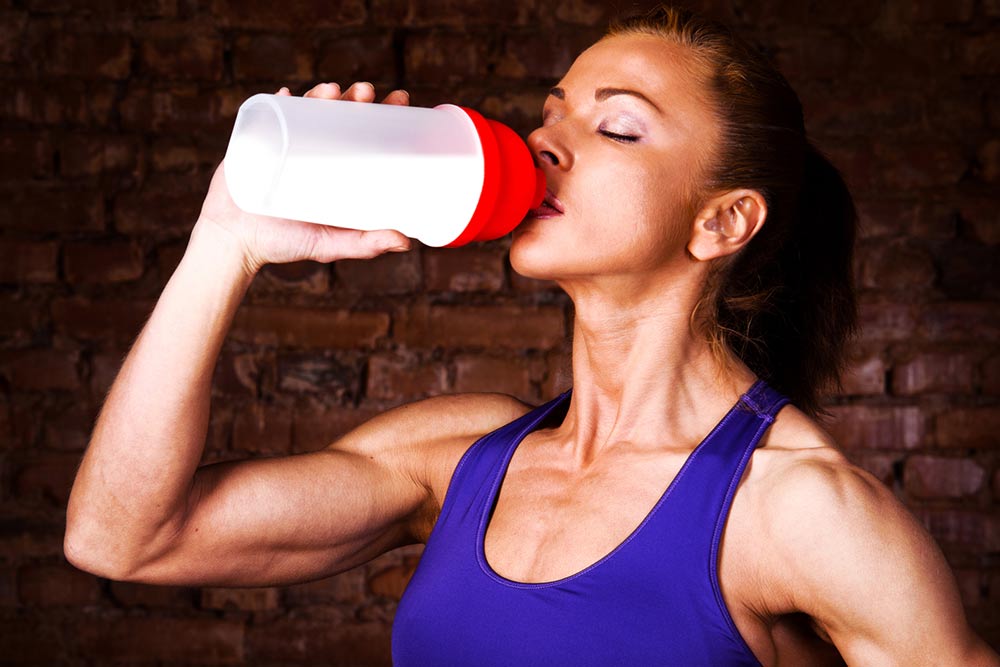Sports drinks vs water – Which is the better option

The sports drink industry is a multibillion-dollar one and is growing exponentially, projected to be worth about 30 billion dollars by 2030. With funky colors, ergonomic bottles, and certain benefits, sports drinks do seem like a tastier option than water, but should they be? Let’s take a look at the reasons why sports drinks can be a good idea and the broader reasons why they shouldn’t be a replacement for water.
What are sports drinks?
Though water is the basis for sports drinks, they are so much more than flavored water. These drinks include essential elements meant to replenish electrolytes lost while sweating during a strenuous workout and re-energize one with an adequate supply of carbohydrates, sodium, potassium, and amino acids. This balance of nutrients allows for enhanced performance, quick recovery from fatigue, proper hydration, cramp prevention, and temperature regulation.
Replenishing electrolytes becomes essential during sweating, as imbalances can hinder proper hydration, leading to fatigue, shortness of breath, and increased heart rate. Therefore, sipping on a sports drink can help prevent these issues by restoring lost electrolytes.
Though sports drinks are often vilified for their sugar content, they can, in fact, be beneficial by rapidly improving physical performance, especially during high-intensity or outdoor exercises. Some drinks incorporate multiple types of simple sugars, efficiently converting them into energy and providing a quick boost to complete a workout successfully.
While water remains the primary hydration source for most individuals, there are specific scenarios where sports drinks offer distinct advantages. Sports drinks should be an option only when exercising for an hour or more and in hot and humid conditions because excessive sweating will trigger the need for electrolyte replenishment. In such cases, plain water might not be sufficient. Endurance athletes, such as marathon runners, may also find sports drinks beneficial in maintaining blood sugar and energy levels during prolonged runs. Apart from athletes, sports drinks can benefit those suffering from vomiting or diarrhea or those who have lost a lot of bodily fluids. Moreover, adding ice to a sports drink can help replenish electrolytes to safe levels.
How can sports drinks be unhealthy?
Originally designed for pro athletes with high-intensity training schedules, sports drinks were never intended for widespread consumption like today. Sports drinks can begin to pose a health issue when used as a meal replacement or a snack alternative. If paired with other sugary drinks, they can contribute to excessive calorie intake that, in turn, comes with its own share of health risks. Besides this, the acidic nature of most sports drinks can cause tooth enamel erosion.
Sports drinks in the right scenario and under specific conditions can be helpful. Such conditions include triathlons, marathons, long bike rides, long sports training sessions, sports tournaments, or even heavy manual labor. But that being said, choosing it over water in casual settings or as a replacement for water can and will be harmful in the long run.
Why choose water?
For all its benefits, sports drinks cannot replace water. While occasionally sipping on it can replenish electrolytes, rehydration does not need to include carbs, sugar, or electrolytes. It’s best to choose water if one exercises for under an hour or does not indulge in a grueling workout session. Simply drinking water as and when one feels thirsty throughout the exercise period will be sufficient to keep cramping and exhaustion at bay.
Though sports drinks are basically water, the addition of sugar and, by extension, calories does not make it an ideal health choice since other nutrients like protein and fiber are completely missing. There are plenty of reasons to choose water over sports drinks in most cases.
– Water is calorie-free. Many sports drinks contain sugars and calories that can contribute to excess calorie intake, which can cause its own set of problems. There are sugar-free versions of sports drinks available, but they contain artificial sweeteners like sucralose or aspartame. These don’t raise blood sugar levels, but the long-term impacts on one’s health aren’t the best.
– It naturally provides essential minerals like sodium, potassium, and magnesium, which are all needed to maintain electrolyte balance. A well-balanced meal plan will only support and enhance this organic setting, negating the need for sports drinks and their added calorific values.
– Water is more affordable than sports drinks, making it the wise and budget-safe choice to stay hydrated.
– It is also free from artificial additives like color, flavor, and preservatives, making it a cleaner and more natural choice.
– Choosing water over sports drinks is better for dental health as sports drinks can erode tooth enamel over time.
Sports drinks and water have their own advantages, but in the larger scheme of things, water beats out sports drinks in the health meter. Water can hydrate and replenish without the added sugars, carbs, and preservatives, and the plastic bottle to boot. In extreme cases, like endurance athletes, pro athletes, those who work out for more than an hour a day, or partake in rigorous manual labor, sipping on sports drinks to maintain blood sugar levels and energy levels while working out or working can be a good idea.









